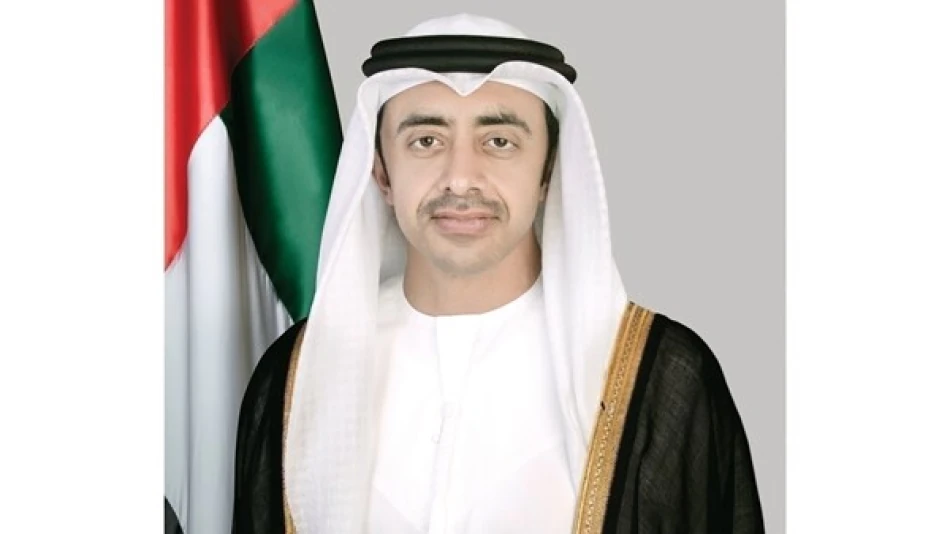
UAE Foreign Minister Abdullah Bin Zayed Welcomes Lebanese Energy and Water Minister for High-Level Talks
UAE-Lebanon Energy Partnership Gains Momentum as Ministers Meet in Abu Dhabi
The UAE and Lebanon are deepening their energy cooperation as officials from both countries met in Abu Dhabi to explore new opportunities in the sector. The high-level diplomatic meeting signals the UAE's continued strategy to expand its energy influence across the Middle East while Lebanon seeks reliable partners to address its chronic power crisis.
High-Level Diplomatic Engagement
Sheikh Abdullah bin Zayed Al Nahyan, UAE's Deputy Prime Minister and Minister of Foreign Affairs, hosted Lebanese Energy and Water Minister Joe El Saadi in Abu Dhabi. The meeting, which also included Lebanese Culture Minister Dr. Ghassan Salame, focused on strengthening bilateral relations and identifying mutual benefits between the two nations.
The UAE minister welcomed his Lebanese counterpart while emphasizing the deep fraternal ties that bind the two countries. Said Mubarak Al Hajri, Chairman of the Emirates Pharmaceutical Industries and Assistant Minister of Foreign Affairs for Economic and Commercial Affairs, also attended the discussions.
Strategic Energy Cooperation Takes Center Stage
Energy cooperation dominated the agenda, reflecting both countries' strategic priorities. For the UAE, this represents another step in its broader regional energy diplomacy, similar to its recent power agreements with Iraq and Pakistan. The Emirates has been positioning itself as a reliable energy partner across the region, leveraging its substantial oil and gas resources alongside growing renewable energy capabilities.
Lebanon's Energy Crisis Context
Lebanon's interest in UAE energy cooperation comes against the backdrop of its severe electricity crisis. The country has been grappling with rolling blackouts lasting up to 22 hours daily, forcing businesses and households to rely on expensive private generators. The economic collapse since 2019 has left Lebanon's state electricity company unable to maintain consistent power supply, making foreign partnerships crucial for any recovery.
Regional Energy Diplomacy Implications
This meeting fits into the UAE's broader strategy of energy diplomacy across the Middle East. Similar to how Saudi Arabia has used energy partnerships to extend regional influence, the UAE is leveraging its energy resources and financial capacity to build strategic relationships. The timing is particularly significant as Lebanon seeks to diversify its energy partnerships beyond traditional suppliers.
Investment and Infrastructure Opportunities
For UAE investors and energy companies, Lebanon represents both opportunity and risk. The country's strategic Mediterranean location and historical role as a regional hub make it attractive for energy infrastructure projects. However, Lebanon's ongoing financial crisis and political instability require careful risk assessment for any major energy investments.
The energy cooperation discussions suggest potential areas including power generation projects, renewable energy development, and possibly liquefied natural gas supply arrangements. These partnerships could provide Lebanon with much-needed energy security while offering UAE companies new market opportunities in the Eastern Mediterranean.
Most Viewed News

 Layla Al Mansoori
Layla Al Mansoori






